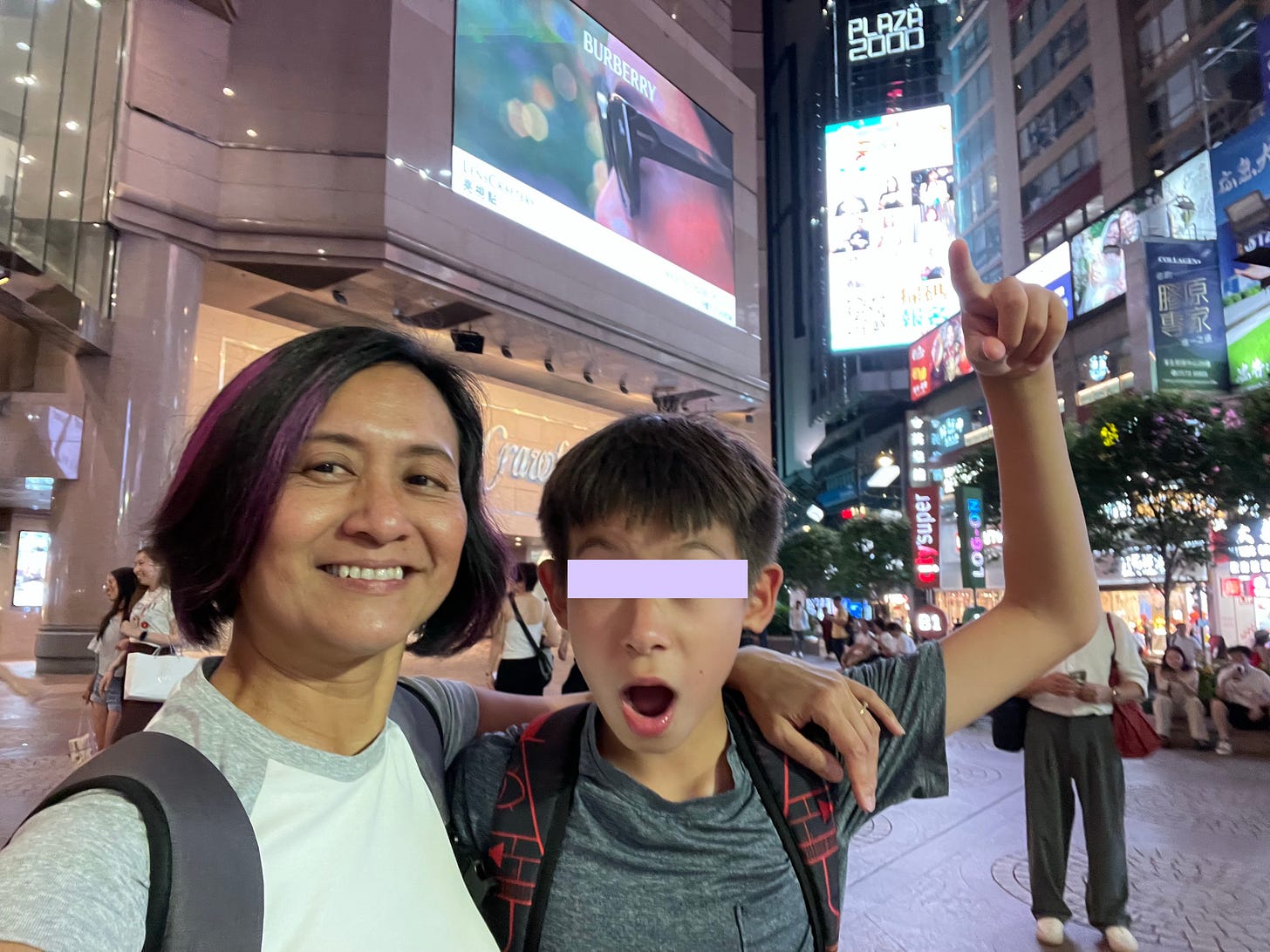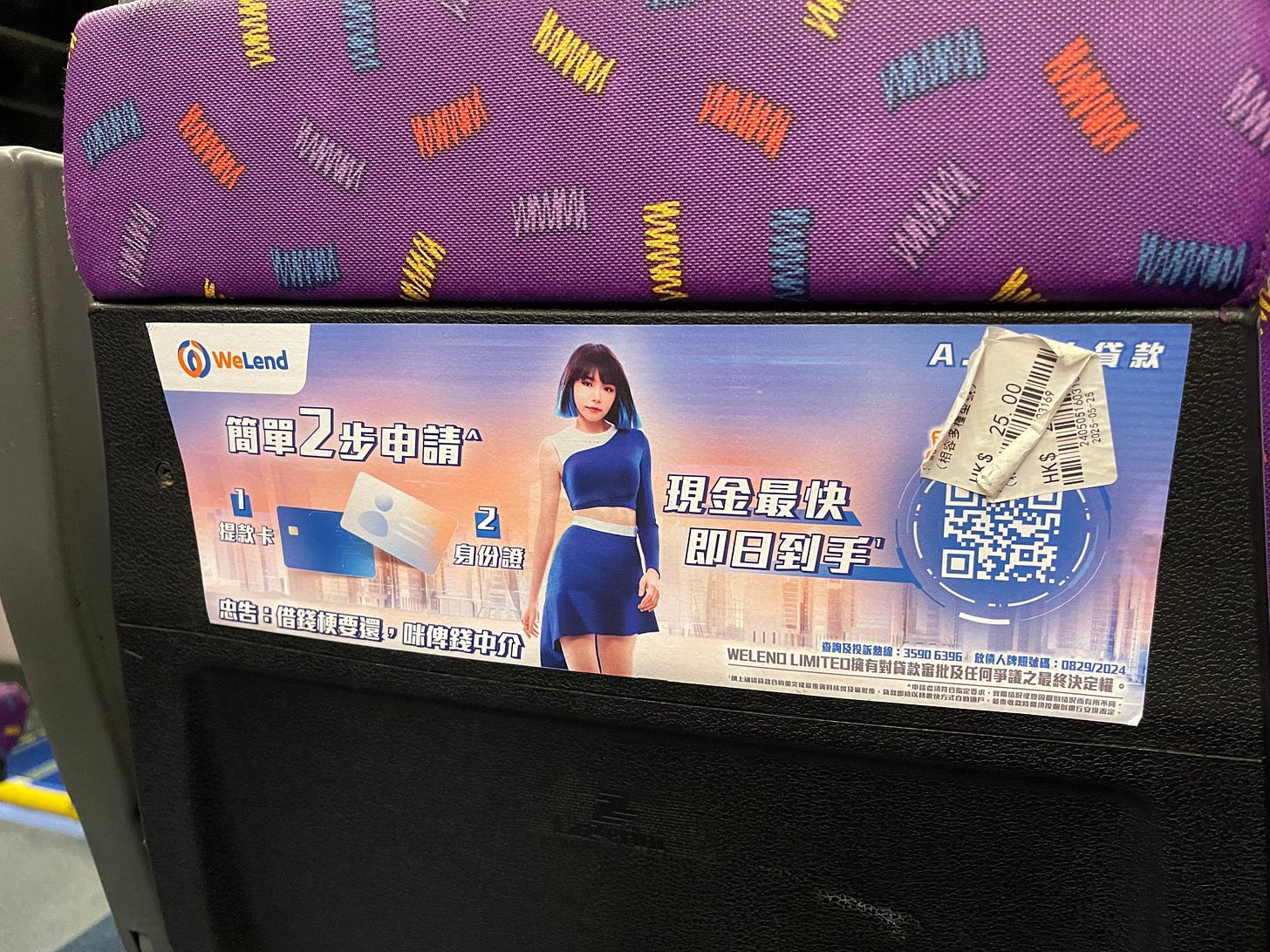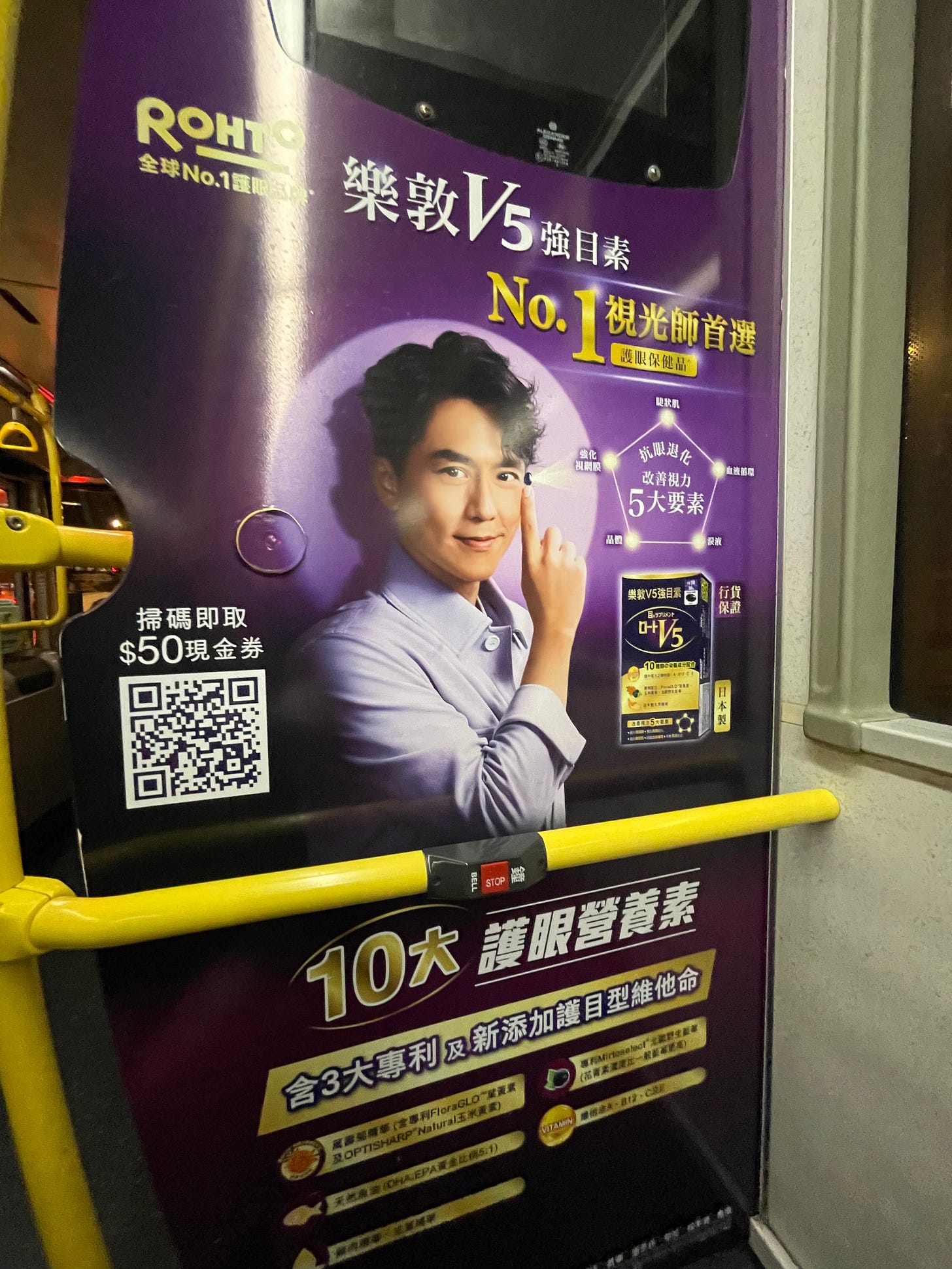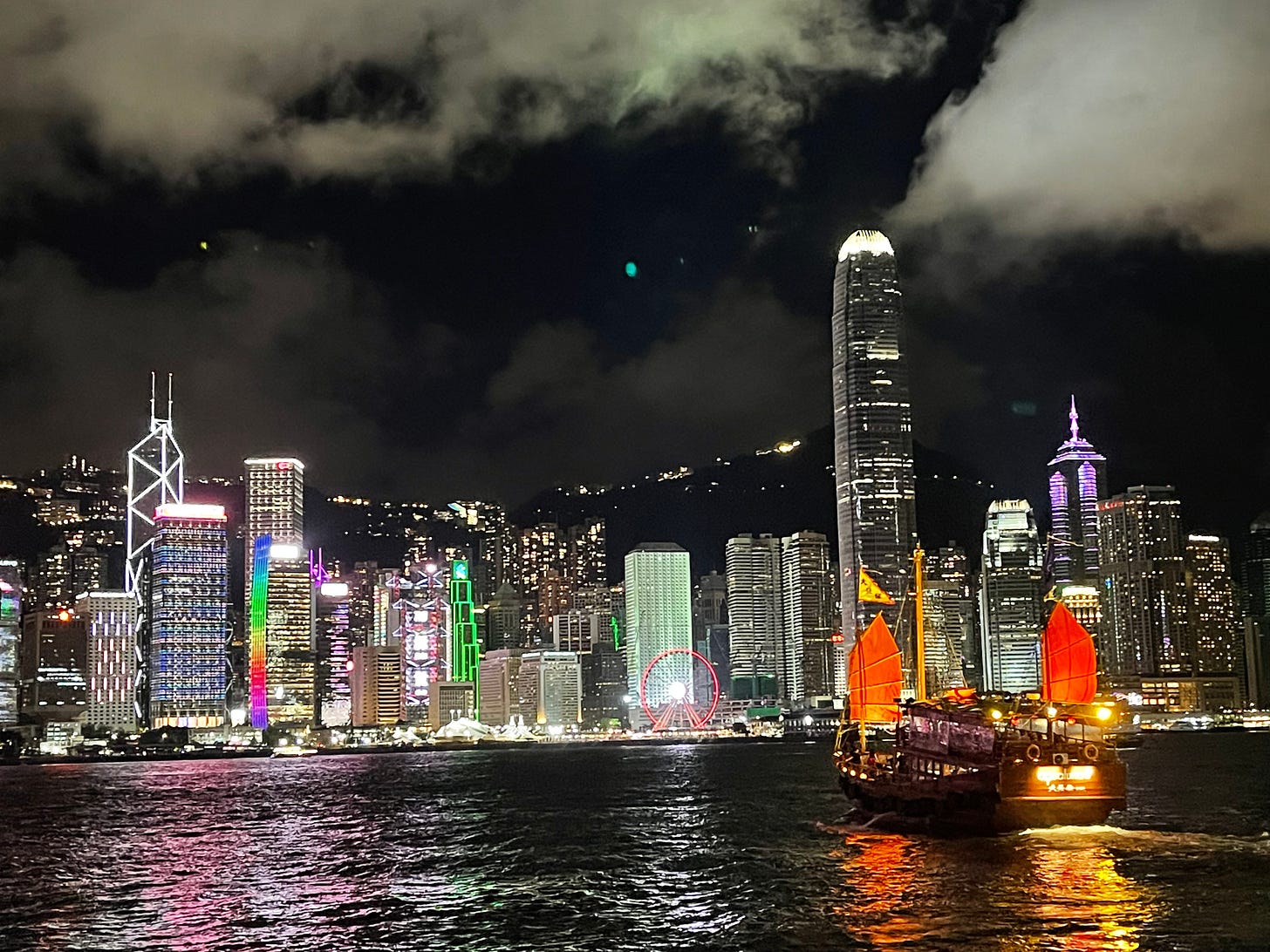Beneath Hong Kong's Neon Lights
A homecoming to my birthplace, a lesson in neon excess and the quiet gold of enough
We were in Tokyo. Now Hong Kong, my birthplace.
Both cities have packed trains, relentless crowds and neon signboards that hang across buildings, bombarding you with brands and businesses.
Hong Kong's neon lights have been iconic. They inspired Blade Runner's dystopian future. Now their glow fades under tight regulations, just like the city's extinguished freedoms.
Even so, signs are everywhere, reminders of a cramped city of 7.5 million, one of the densest places on earth where people live packed tightly and vertically in Hong Kong’s towering skyscrapers.
The neon signs scream: Buy! Consume! Want!
Every corner pushes something at you — clothes, digital products, food. Scantily clad women on bus seats advertise loans. Posters inside another bus promise vitamins to slow eye degeneration.
I stood in a glitzy harbor-side luxury mall, surrounded by well-dressed shoppers. My eyes skimmed their sharp outfits, polished shoes, women’s makeup. I caught myself comparing their wealth to mine.
“Do I measure up?”
The truth is there’s always someone better off and worse off than you. But the contrast in that moment sharpens my own lack.
Another Hong Kong mall: the food court packed, the supermarket swarming. Twenty-deep lines at counters. Residents crowded around prepared meals ready to take away, surrounded by brands and cuisines from many corners of the world.
An abundance of food.
Each stall begs for your attention, makes you want more.
“There are so many choices here,” I told my 12-year-old son Julian. “You can’t say you don’t have enough!”
Isn’t that what we chase? Better food, clothes, houses. A better life?
I looked to replace my battered suitcase, but the sheer variety stirred desires and pulled me deeper into searching.
Is there a better model? A better deal? What if I am missing out?
My dad mentioned more affordable options across the border in mainland China. For a moment, the world seemed full of opportunities.
Yet in that moment, I felt paralyzed, empty, scarcity, dissatisfied.
My mind swung between needs and wants, blurring the line without me realizing.
You may recognize this feeling from IKEA or Costco. You arrive for one thing, leave with 10. The choices spark dopamine cravings like YouTube or TikTok — that endless scroll, that mental overload, that bottomless wanting leaving you hollow.
Paradox of Choices
American psychologist Barry Schwartz called this the paradox of choice: more options demand more effort, fuel decision fatigue and amplify regret, leaving us less satisfied.
To me, it felt overwhelming.
There's nothing wrong with wanting a better life for we are human. The danger comes when we lose ourselves in the pursuit, when we forget to ask: do I need more. What for?
What’s truly essential?
I have changed.
The neon lights, the clinking plates and chatter of restaurants once excited me, embodied life's vibrant pulse. Now, after too much time in it, that same energy exhausts me. I remember even as a child, they sometimes left me stressed.
Now I see more clearly. The city’s glaring lights, noisy streets and relentless ads echo my inner restlessness. Do you ever feel this way, too?
Many Hong Kong friends who moved abroad often complain of boredom, longing to return. I now wonder how much of that boredom is just their brains craving the familiar adrenaline of home?
Later, as night fell and crowds thinned, Julian and I boarded the bus to my dad's home. That's when I noticed the sharp shift within me.
The bus grew quiet, then still. In that moment, the neon lights seemed almost mournful as eyes turned away from them.
My mind settled. I breathed a sigh of relief.
Then Andy’s memory surfaced: places we’d lived, moments we’d shared. His health crisis. His decline. His death. Sadness rose. Tears followed.
What does any of this mean?
Death stands in stark contrast to the material world. Thankfully, it teaches me what matters.
What are we truly searching for?
We mistake more for satisfaction.
Now we’re stressed, burned out.
More is a habit, a response to the scarcity buried deep within us.
The world tempts us to seek fulfillment outside ourselves, but it’s a mirage.
We forget the power of enough and simplicity.
Stay awake in the noise.
Know when to stop.
Don’t let the race decide your worth.
Seek what nourishes your soul.
Come back to yourself.
Your life is yours to live.









